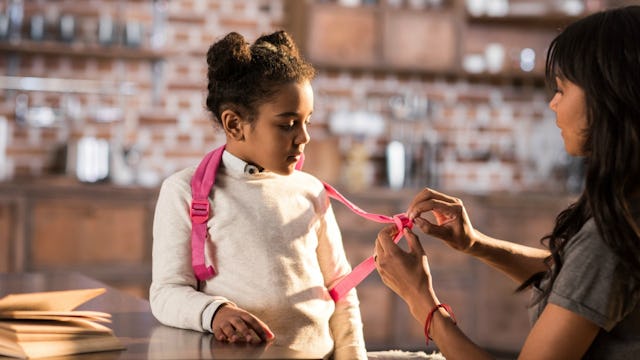I'm A Former Public School Teacher Who Doesn't Want To Send My Kids To Public Schools

My oldest child starts kindergarten in a little over a year, and thinking about it fills my heart with panic.
It shouldn’t be this hard. Especially not for me. I am a former kindergarten teacher. But it terrifies me.
Of course, the news doesn’t help. No matter the age, our schools are filled with our babies. You’d like to think that the buildings would be impenetrable, but they are far from it. The realization that the one place our children should be safest can transform into a shooting range for deranged killers is horrifying.
Sadly, it’s not just that though. Our schools are failing our children in so many ways. It’s the education I know my daughter will receive. Please understand: my intentions are not to bash public school teachers in any way. The majority of them are saints among us. They are over-worked, under-paid, and not appreciated. They work tirelessly to make little lives better. But they are limited by a system that oppresses them.
All narcissistic mom pride aside, my daughter is pretty academically advanced for her age. She will be reading well before she starts kindergarten. We are working on that now because she has expressed a strong desire to learn how to read. I’m not going to stifle that love for knowledge. She picks up quickly and it won’t take long.
So when she enters kindergarten, she will not just be reading, but reading well above grade level. I should be ecstatic for that. But I’m not because I know how it works. If she’s lucky, she gets a teacher who does too much. Who strives to find work that challenges her, completely separate from the curriculum they are teaching everyone else. They would find those resources, but have no time to work with her on it. The priorities will always be the students who struggle. As it should be. But there’s simply not enough time in the day to get it all done.
Maybe she picks up on her extra studies alone, maybe she doesn’t. Either way, her education has been cheapened because she could do the same thing, at home, but with help.
And if she were a low-preforming student. She would be but one of many. She would get a lot more attention. But no matter what that teacher does, she likely has many other students desperately needing her and one person can only be in so many places at once. Ridiculous class sizes compound this problem. Lack of access to the necessary resources completely sets the whole equation up to fail.
At the end of the day, I know my daughter, much like millions of other children, will not be receiving the education she deserves.
Here’s the thing though. It also pains me to not think about sending my daughter to public schools. Because people like me are inadvertently making the problem worse. As our government pushes to privatize education, we give in and allow them to do just that. We pull our students out and home school or we put our children in private schools and take money out of an already bankrupt system. Leaving the other children falling further behind as the cracks in the foundation of our system grow deeper.
There is a possibility, I will one day return to teach in public schools myself. I will pray I have an understanding principal who lets the girls stay after school each day while I work late. I will still take things home to work on. Frequently, I will get migraines from stress, and carry my students home in my heart every night. And I will feel guilty because I have to choose between spending time with my own children, or researching new ideas and solutions to help my struggling students. I will love my students, and the idea of my job, but resent the way in which I am forced to do it. This I do not look forward to either.
Fortunately, it’s not time yet. I have a year to decide, and I plan on putting it off til the very last second while internally obsessing over it everyday. Either way children lose. How do you decide?
This article was originally published on